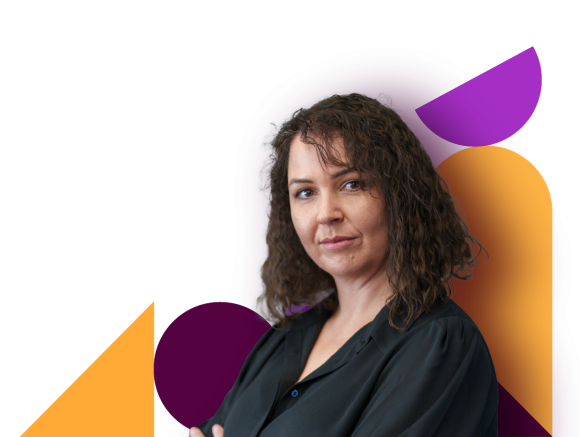"Logistics, supply chain and transport form a complex system of interconnected infrastructure, relationships, and communication like a DNA strand, comprising many parts which must be considered simultaneously to build a high functioning economy for Australia."
Current positions
- Chief of Policy, Australian Logistics Council
Previous positions
- Senior Manager Commercial Planning, Patrick Terminals
- National Contract Logistics Solutions Engineering Manager, Kuehne+Nagel
- Business Solutions Manager, Patrick Terminals
- Solutions Design Engineer, CEVA Logistics
- Project Support, Victoria University
- Executive Officer to Hermione Parsons, Director of ILSCM, Victoria University
- Administration Systems Coordinator, Victoria University
- Contracts and Administration Coordinator Port Systems and Logistics, Port of Melbourne Corp
- Project Coordinator, Mitre 10 (New Zealand) Limited
- Executive Assistant, Flint Group
- Project Administrator, Mitre 10 (New Zealand) Limited
- Trade Solutions, Manufacturing and Estimating Coordinator, Placemakers
Career snapshot
Sheena Fardell is Chief of Policy at the Australian Logistics Council and has more than 15 years’ experience in the transport, logistics and supply chain industry.
She is a specialist in strategy development and planning, harnessing industry based holistic design approaches to generate efficient, effective, and sustainable supply chains. Sheena’s experience extends to network planning and optimisation, with hands-on project and operational management across diverse of logistics environments, including transport and warehousing.
Sheena has a Master’s degree in Supply Chain Management from the University of Melbourne, and a Bachelor of Business, Small Business and Entrepreneurship and a Diploma of International Business from Victoria University.
In her own words
Growing up in the Middle East, a family friend pointed out that I would be good in the logistics and supply chain industry. At only nineyears old, I didn’t know what a logistician did, but her explanation sounded interesting and stuck with me. Fast forward to when I entered the workforce, and I accidentally fell into the logistics and supply chain industry, much like many others do. I believe this is one of the industry's biggest challenges – a lack of awareness among people, young and old, regarding the crucial role of the supply chain and logistics industry. We are the hidden enabler.
Describing myself as a multi-linguist of disciplines, including a fluent geek, engineer, transport operator, warehousing, manufacturer, and supplier, I've witnessed the value of bridging communication gaps among various stakeholders throughout my career. This skill is fundamental to navigating the complexities of supply chain dynamics.
Working extensively in operations, I've learned that nothing really goes according to plan. When issues arise, it's essential to run into the ‘fire,’ roll up your sleeves, and engage with the people on the ground. It’s about saying: ‘here is the problem, this is what I am trying to achieve, and can you help me with what I need to do?’ I strongly believe in learning from setbacks, creating new processes, and ensuring mistakes are not repeated.
Greater change faster
While women in the logistics industry find it fulfilling, progress in increasing female participation has been slow. This issue is a key focus at the Australian Logistics Council. The Wayfinder: Supply Chain Careers for Women initiative, fully funded by the industry, which aims to heighten awareness of opportunities and career pathways. The initiative features an amazing digital supply chain career map with 150 jobs across 18 sectors, initiating a conversation about specific skills, salary ranges, and pathways to entry. It proves to be a powerful communication tool as it illustrates the huge transferability of skills into supply chain and logistics industries making it a great opportunity at any point of a career.
There is a significant shortage of available workforce and attracting more women to the industry, I believe, will not only fill that need but accelerate positive change.
Connecting for growth
Another critical issue is that our urban development and planning purposes are not fit for purpose to deliver the needs of our communities. The percentage of available industrial land in our capital cities is woeful and among the lowest of developed nations in the world. We need to urgently address this issue and it is a significant focus of the Australian Logistics Council. How are we supposed to grow and sustain our quality of life if we don’t have the industrial land available or the corridors protected or the interconnected infrastructure required? Warehouses are significant economic hubs and need people. And people need to live close to their work. The government must stop thinking of planning as an ‘either/or’ dynamic. Instead, a holistic approach is required where we think about how best to cohabitate with industry and the economic importance of supply chain logistics is recognised. We need new thinking around the education of planners to include reference to freight, transport and logistics.
My vision for the industry in five years…
The industry is a resilient and valued cornerstone of Australia's economy. The lessons learned during COVID will continue to drive investment, technological advancements, and national coordination, making the sector more attractive, inclusive, resilient, and environmentally sustainable on a global scale.

